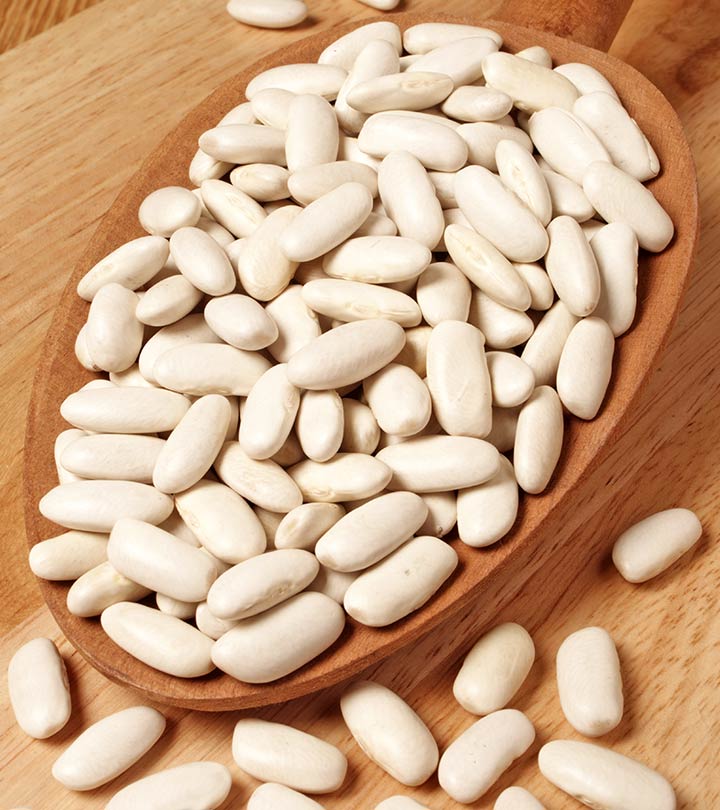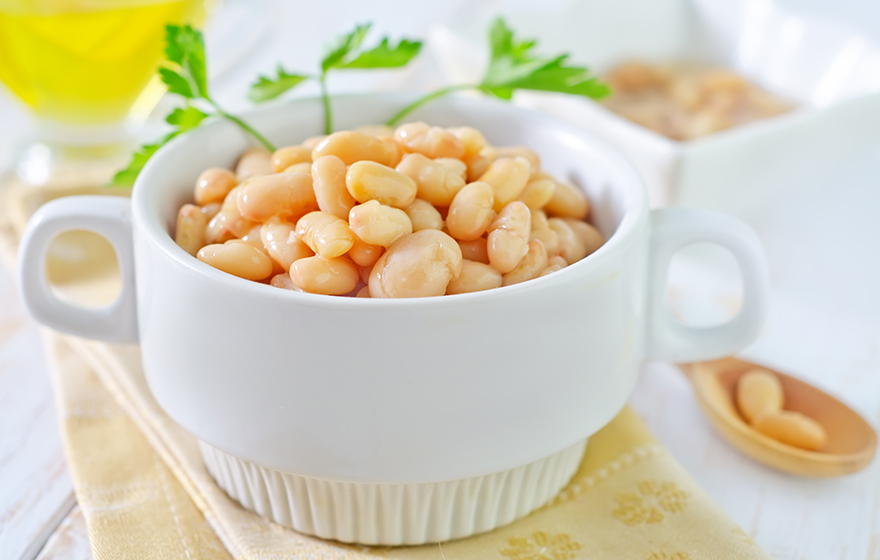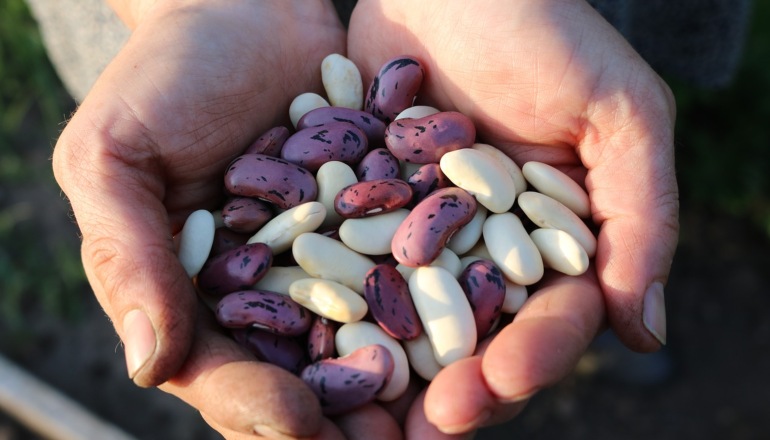The navy bean got its current popular name because it was a staple food of the United States Navy in the early 20th century. These small white beans are perfect for making baked beans. Dry navy beans are available year-round in prepackaged containers as well as bulk bins. Canned navy beans are also available year-round at local markets. Studies also show numerous health benefits directly related to the high content of essential nutrients and phytochemicals found in navy beans. In the post, we would share Navy Beans Nutrition Facts and Health Benefits. Keep reading!
Contents
If you’ve ever come across a small, white bean in a soup or bean salad that you can’t quite place, you may have heard it go by one of many names – navy bean, haricot bean, or pea bean. In fact, it is simply a different class of the most common beans found throughout the Americas, scientifically known as Phaseolus vulgaris. Growing on either bushes or vines, these beans are extremely popular throughout the world and are not only praised for their versatility and ease of growth but also their nutritive value. The name ‘Navy bean’ is derived from their widespread use by the United States Navy, who used the beans as a staple part of a healthy diet for sailors. You can find navy beans across the world now, in a variety of cultivars, and they are notoriously easy to grow and hardy.
Due to their high nutritive value and protein content, they have become staple foods in many different cultures and can be stored for long periods of time or canned without losing their nutritional value, unlike many other vegetables or legumes. While it may seem like all beans are created equal, that isn’t exactly true, and navy beans do possess certain unique chemical components, such as phosphatidylserine.
Protein
There are 7.5 grams of protein per half-cup serving of cooked navy beans. There are two forms of protein: complete and incomplete. Most plant-based foods, including navy beans, contain incomplete protein meaning they lack some of the amino acids typical of the complete proteins found in meat and dairy products. However, eating whole grains sometime during the day along with navy beans is shown to satisfy the amino acid requirement for complete protein.
Navy beans also contain a good amount of lysine, an amino acid that may fall short in plant-based diets unless beans or legumes are included. Lysine is important for human growth and development, tissue repair, and provides numerous other health benefits.
Vitamins and Minerals
Navy beans are a rich source of many important micronutrients including folate (B-vitamins), iron, zinc, magnesium, calcium, and potassium. In fact, one serving of navy beans meets approximately 18% of the recommended daily allowance (RDA) for potassium, a mineral required for your body to function properly. Potassium is also known as one of the electrolyte blood minerals that helps regulate fluid balance, heartbeat, nerve function, and muscle contraction.
Iron for Energy
To providing slow burning complex carbohydrates, navy beans can increase your energy by helping to replenish your iron stores. Particularly for menstruating women, who are more at risk for iron deficiency, boosting iron stores with navy beans is a good idea—especially because, unlike red meat, another source of iron, navy beans are low in calories and virtually fat-free. Iron is an integral component of hemoglobin, which transports oxygen from the lungs to all body cells, and is also part of key enzyme systems for energy production and metabolism. And remember: If you’re pregnant or lactating, your need for iron increases. Growing children and adolescents also have increased needs for iron. A one cup serving of navy beans provides 24% of the daily recommended intake for iron.
Protein Power Plus
If you’re wondering how to replace red meat in your menus, become a fan of navy beans. These hearty beans are a good source of protein, and when combined with a whole grain such as whole-wheat pasta or brown rice, provide protein comparable to that of meat or dairy foods without the high calories or saturated fat found in these foods. And, when you get your protein from navy beans, you also get the blood sugar stabilizing and heart health benefits of the soluble fiber provided by these versatile legumes. A cup of navy beans provides about 15 grams of protein.
Supports Heart Health
The high fiber content in navy beans is also shown to improve heart health. Most of the benefits are said to be attributed to the soluble fiber reducing the LDL (bad) cholesterol and increasing HDL (good) cholesterol. Lowered LDL cholesterol levels and having a healthy HDL to LDL cholesterol ratio are shown to reduce the risk of coronary heart disease (CHD) as well as cardiovascular disease.
The folate and magnesium in navy beans are also shown to protect the heart. Folate functions by lowering homocysteine levels. Homocysteine is an amino acid found in the blood and at elevated levels is a risk factor for heart disease. Magnesium is an important mineral that helps maintain a healthy heartbeat and normal blood pressure.









